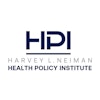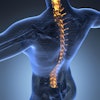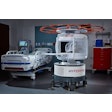
VIENNA - Preoperative breast MRI in women with newly diagnosed breast cancer can help tailor surgical treatment and does not significantly increase the mastectomy rate, according to research presented at ECR 2017.
 Dr. Francesco Sardanelli of the University of Milan.
Dr. Francesco Sardanelli of the University of Milan.The findings address the concern that preoperative breast MRI may prompt overtreatment in the form of unnecessary mastectomies, said presenter Dr. Francesco Sardanelli of the University of Milan. Results from the Multicenter International Prospective Meta-Analysis of Individual Woman Data (MIPA) showed an increase in the mastectomy rate of only 1% when data from women who had preoperative MRI were compared with data from those who did not.
"Some say yes to preoperative breast MR, some say no, and some are uncertain," Sardanelli said. "But [these study results show] that it offers better tumor evaluation and, therefore, the opportunity for tailored treatment."
Personalized medicine?
MIPA is sponsored by Bayer HealthCare, supported by the European Society of Breast Imaging (EUSOBI), and conducted by the European Institute for Biomedical Imaging Research and European Network for the Assessment of Imaging in Medicine (EIBIR/EuroAIM). It began in 2012 and was designed to analyze data from two groups of women with newly diagnosed breast cancer who did and did not undergo breast MRI before surgery.
As of July 2016, 4,944 patients were enrolled from 34 centers in 14 countries; of these, 2,425 had a complete case report. Half of these patients had MRI before surgery and half did not. The majority of patients (70%) received 0.1 mmol/kg of gadobutrol (Gadavist, Bayer). Eighty-four percent also had diffusion-weighted imaging (DWI).
Among the women who underwent MRI before surgery, the exam was ordered by a radiologist in 68% of cases and a surgeon in 40%. The planned mastectomy rate after mammography and ultrasound was 15.4% for those women who did not have MRI before surgery and 20% for those who did, the researchers found. Actual mastectomy rates were 16% in the non-MRI group and 21% in the MRI group -- for a mastectomy rate increase after preoperative breast MRI of only 1%, Sardanelli said.
Of 1,004 breasts conservatively treated after breast MRI, the surgery plan was unchanged in 73%; more extensive surgery was done in 13.7% and less extensive surgery in 12.7%, Sardanelli said. In addition, the reoperation rate for close or positive margins was much lower when women had preoperative breast MRI, at 8.3%, compared with 13.4% in the group that did not have the exam.
"This is what we mean when we say 'personalized medicine,' " Sardanelli told session attendees. "Preoperative breast MRI helps tailor treatment, often from a more aggressive plan to a less aggressive one."
These MIPA findings suggest that breast MRI doesn't prompt mastectomies, but rather acts as a tool to confirm mastectomy treatment plans, Sardanelli concluded.
"Planned mastectomies prompt breast MRI, not vice versa," he said. "We see this in the high percentage of surgeons who order the exam. They're more confident in their surgical plan if a breast MR has been done."





















